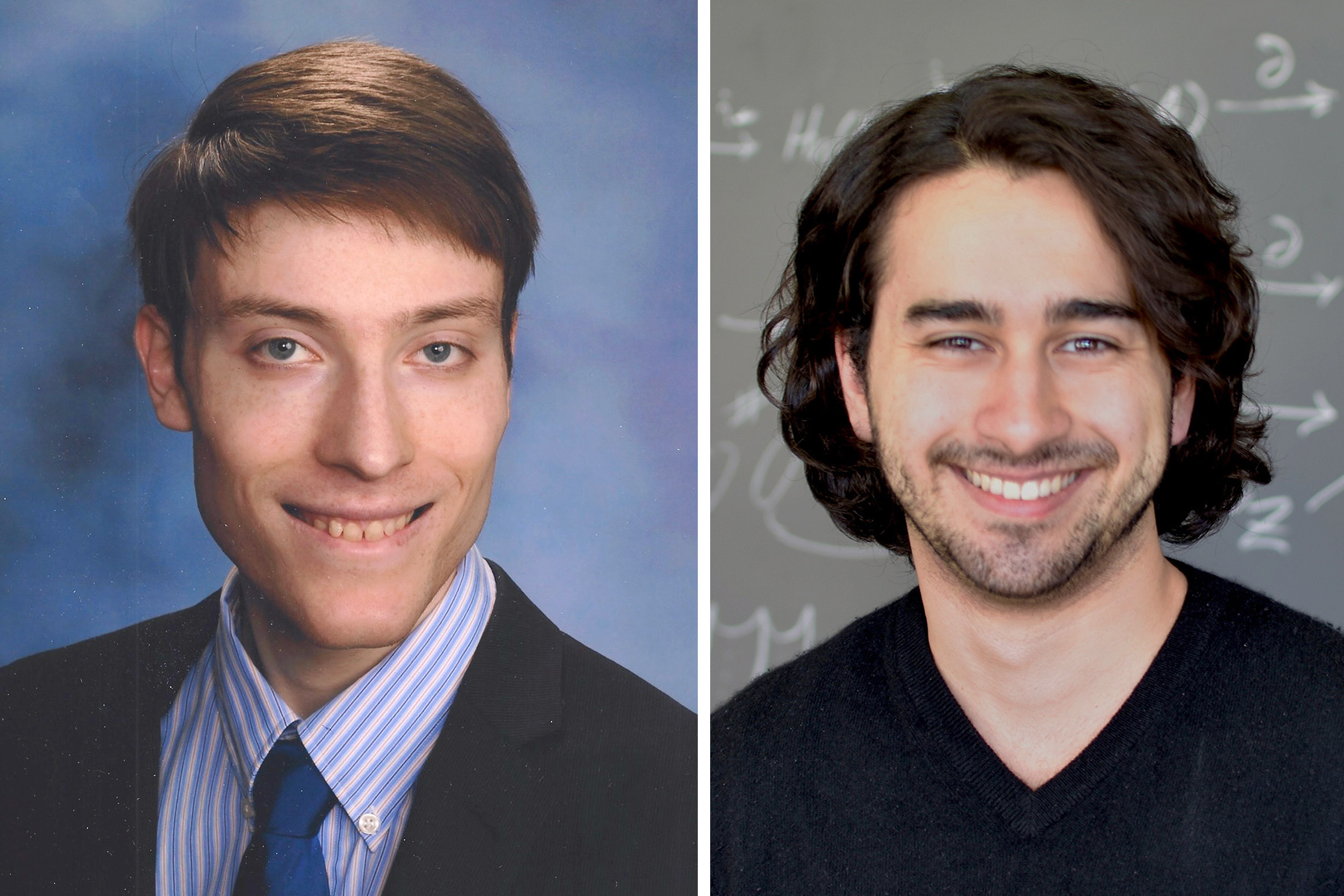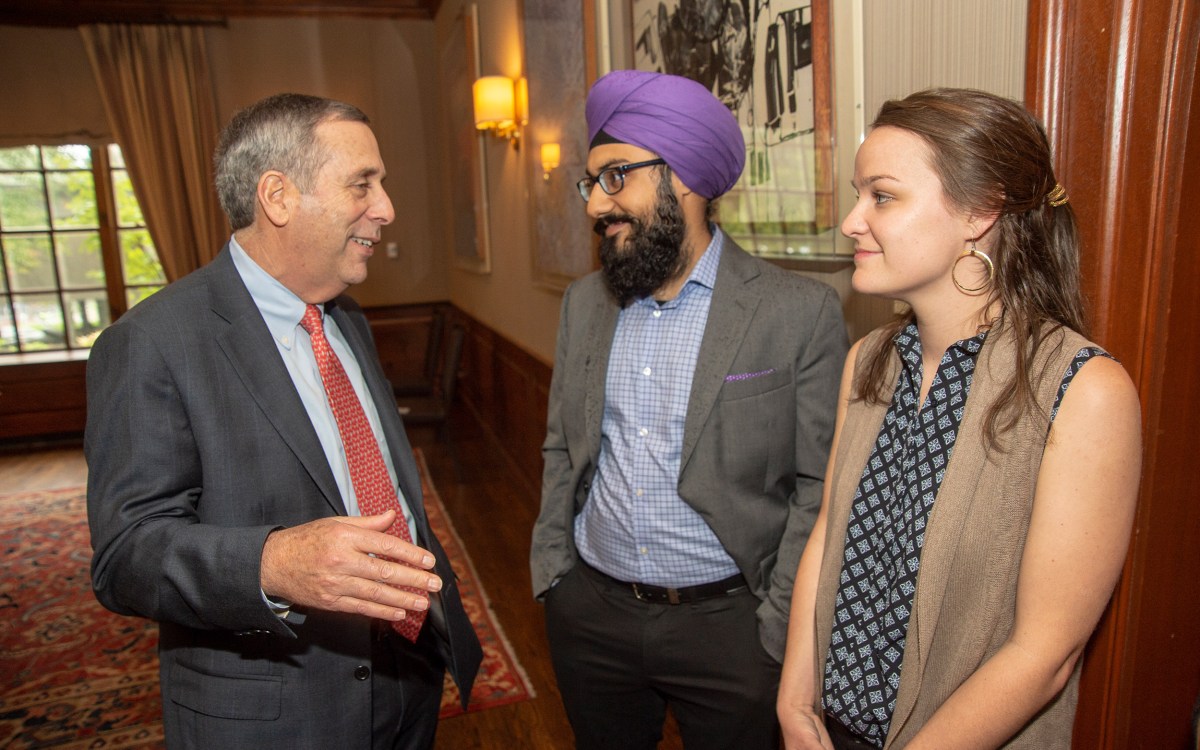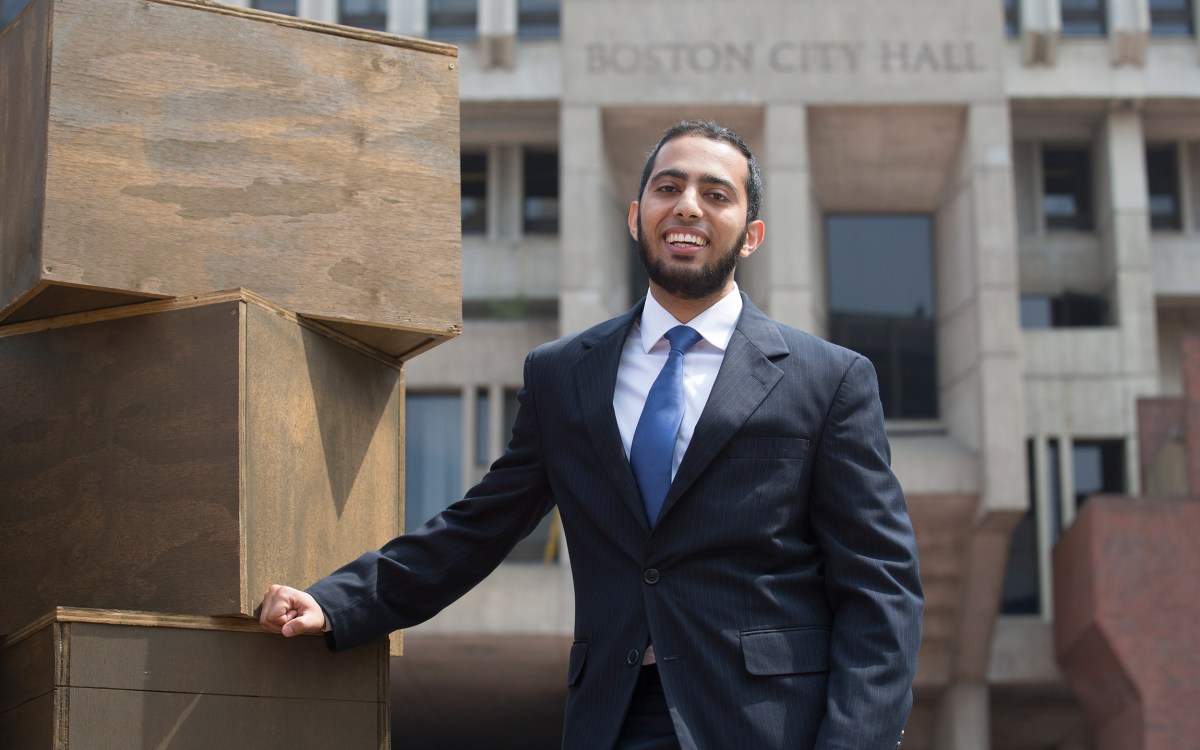
Noah Golowich ’19 (left) and Ph.D. candidate Alex Atanasov are selected as this year’s Hertz Fellows.
Courtesy of Hertz Fellows
Two from Harvard win prestigious fellowship
Golowich, Atanasov will receive Hertz award
Every October, hundreds of candidates submit their applications to the Fannie and John Hertz Foundation in the hope of being selected for the prestigious fellowship. Of more than 750 written applications, only 10 to 15 are ultimately awarded.
Two Harvard students were selected this year: Noah Golowich ’19, who is earning an A.B./S.M. in mathematics and computer science, and Alex Atanasov, a Ph.D. candidate in theoretical physics. They join the ranks of 199 other Hertz fellows from Harvard over the past 55 years.
The Hertz Foundation provides financial support, ongoing mentoring, counsel, symposia, and a network of peers to students pursuing doctorate studies in the applied physical and biological sciences, mathematics, and engineering. Almost all the fellows are either seniors or first-year graduate students.
Applicants first submit written material, and then are narrowed down by two rounds of interviews conducted by Hertz alumni and experienced Ph.D. engineer and scientist interviewers. In the first round, Golowich, who first read about the opportunity online, said he submitted four brief essays about his research interests, a resume, his research papers, and four letters of recommendation.
“I am very excited and honored [and] I’m looking forward to joining the Hertz community,” Golowich said. “I’d also like to thank all of my mentors and collaborators who have been essential to my academic growth.”
Currently, Golowich is working on research projects in theoretical computer science, and he will intern at Google Research this summer. He said he is looking forward to creating new friendships and seeking research collaborations during retreats and events for Hertz fellows, as well as a yearly summer workshop.
Atanasov called the initial application process “fairly straightforward,” and said he even enjoyed the long interviews.
“It was a good opportunity to think seriously about the role that my research interests play in the broader landscape of developing science, and to practice communicating this to interviewers across a wide range of fields, from computational fluid dynamics to biological systems,” he said.
Atanasov heard about the fellowship during his senior year at Yale, where he earned his B.S./M.S. in mathematics and B.S. in physics, but it was too late to apply then. He received support and encouragement from his research mentors when he applied this year, which boosted his confidence. This is the first national award he has received.
Atanasov too said he was looking forward to taking part in the Hertz network and “getting a better perspective of cutting-edge research across many different fields.”
“I really appreciate the flexibility it gives me in pursuing many different directions of research. Physics nowadays is in a really interesting place where a lot of cross-fertilization is happening between many once-disparate areas,” he said. “This is especially pronounced in the deep connections being made between our understanding of the fundamental laws of nature on one hand and the emergent behaviors of complex systems on the other.
“I look forward to studying and appreciating this story much more deeply, and the Hertz fellowship will allow me to more easily traverse the gaps across these disciplines,” Atanasov added.
This semester, Atanasov has been finishing up a few projects left over from his senior year at Yale before beginning intensive graduate work. He will also receive support from a national defense science and engineering graduate fellowship (NDSEG) for the next three years.






